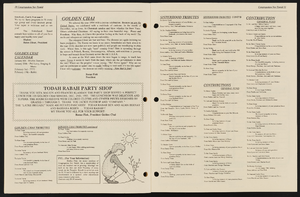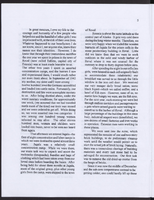Search the Special Collections and Archives Portal
Search Results

Interview with Richard Lawrence Garwin, July 21, 2004
Date
2004-07-21
Archival Collection
Description
Narrator affiliation: Physicist, IBM; Consultant, Los Alamos National Laboratory
Text

Interview with James Nobuo Yamazaki, October 14, 2005
Date
2005-10-14
Archival Collection
Description
Narrator affiliation: Physician in Charge, Atomic Bomb Casualty Commission, Nagasaki
Text

Meeting minutes for Consolidated Student Senate University of Nevada, Las Vegas, January 28, 2002
Date
2002-01-28
Archival Collection
Description
Includes meeting agenda and minutes.
Text
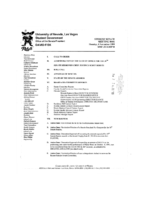
Meeting minutes for Consolidated Student Senate, University of Nevada, Las Vegas, November 08, 1999
Date
1999-11-08
Archival Collection
Description
Includes meeting minutes along with additional information about State of the Senate Address.
Text
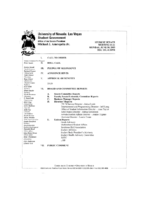
Meeting minutes for Consolidated Student Senate, University of Nevada, Las Vegas, June 30, 2003
Date
2003-06-30
Archival Collection
Description
Includes meeting agenda and mintues, along with additional information about memorandums, bylaws, and the Articles of Incorporation for the Rebel Yell Student Newspaper.
Text

Meeting minutes for Consolidated Student Senate, University of Nevada, Las Vegas, August 25, 2003
Date
2003-08-25
Archival Collection
Description
Includes meeting minutes and agenda, along with additional information about bylaws
Text
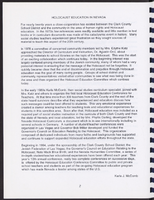
Holocaust Education Conference program, 1997
Date
1997
Archival Collection
Description
Booklet program from the Holocaust Education Conference, 1997.
Text
Pagination
Refine my results
Content Type
Creator or Contributor
Subject
Archival Collection
Digital Project
Resource Type
Year
Material Type
Place
Language
Records Classification

